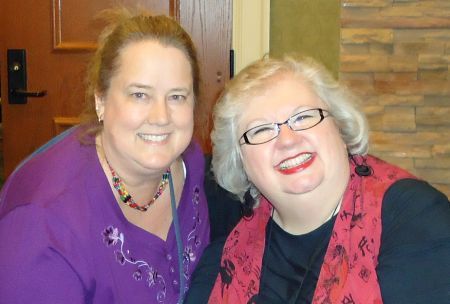
Chapter Eleven: “Our Hero Makes His Move” Ruth 4:1–12
Finally, the moment we’ve been waiting for. Will Mr. No redeem our Ruth (say it isn’t so!), or will it be Mr. Right?
1. a. One nineteenth-century commentator, F. C. Cook, suggested, “The name of the kinsman was either unknown or purposely concealed.” Considering that Boaz is aware of the other kinsman’s existence, which scenario seems most likely to you, and why?
Boaz was well known and well respected in Bethlehem, and as one of his family’s kinsman-redeemers, he would have kept tabs on the other men in Elimelech’s clan who could undertake that responsibility. I believe absolutely that Boaz knew the man’s name. Why Boaz chose not to use it is less clear, though he certainly managed to put Mr. No in his place. (Personally, I love this whole scene!)
By not addressing the man by name, what is Boaz communicating to him? And to the ten elders? And to all the citizens of Bethlehem within earshot?
Years ago I had a salesman at my job admit that he got a charge out of my saying, “Hey, handsome!” whenever I passed him in the hall—until the day he realized I used that same endearment for all the sales guys whose names I couldn’t keep straight!
Forgetting someone’s name is one thing. But deliberately avoiding the use of someone’s name you know is another matter altogether. It communicates, “You aren’t important to me. You carry no weight around here. And you won’t be missed when you leave.” Whether or not Mr. No got the message, the ten elders and all the witnesses at the town gate would have heard it loud and clear: “This guy is history.”

Why is it important that they see who Mr. No is…and who he is not?
Since Mr. No is legally next in line, he must be given the opportunity to serve as Ruth’s kinsman-redeemer. When he refuses to fulfill his role with so many watching from the sidelines, Mr. No can never charge Boaz later with usurping his position. Everything was handled as the law required. Mr. No had his chance to do the right thing, and he blew it.
1. b. Since in the Bible the word name can also refer to one’s reputation, what else might this man’s lack of a name tell us about him?
There’s a huge difference between having no reputation (as in, “Never heard of the guy”) and having a bad reputation (as in, “His face is all over the tabloids”). We can’t be sure which one applies to Mr. No, though I keep thinking of Boaz saying, “If he is not willing, as surely as the Lord lives I will do it” (Ruth 3:13). Sounds as if Boaz knew what to expect from this guy.
A good name is not easily obtained and can be quickly lost. What counsel does Proverbs 3:3–4 offer when it comes to keeping our good names?
It’s almost as if Solomon wrote those verses about his great-great grandfather, Boaz: “Let love and faithfulness never leave you.” His words aptly describe Ruth’s kinsman-redeemer, who won “a good name in the sight of God and man.”
In the same way, we’re challenged to be loving and faithful—yes, at all times and to all people—which is possible only with the love and faithfulness of God flowing through us. If we focus on being his servants, a good name is bound to follow. Sadly, in our celebrity-obsessed culture, being famous—for any reason—matters more to people than being loving, trustworthy, or kind. Who will rescue us? Only our Lord Jesus, whose name is above all names.
2. a. Author Carol Bechtel believes Mr. No “is a foil, allowing Boaz to shine even more brightly.” Let’s test that theory. Write down as many descriptive words for Mr. No as you can come up with. Then next to each one write the opposite meaning.
Mr. No Not Mr. No
Unnamed Renowned
Vacillating Decisive
Greedy Generous
Self-centered Other-focused
Cowardly Brave
Take a look at the list on the right. Do those words in fact describe Boaz?
You bet! Mr. No is the anti-Boaz of this story, our hero’s exact opposite. As such, he makes Boaz look good because Boaz is good, thanks to God’s righteousness at work in him.
Consider how the following verses from Proverbs might help us understand these two very different kinsmen:
Mr. No Boaz
Proverbs 10:7:
His name will rot His memory will be a blessing
Proverbs 11:28:
He trusts in riches He walks in righteousness
He will fall He will thrive like a green leaf
Proverbs 12:23:
He is a fool He is prudent
He blurts out folly He keeps his knowledge to himself
Again, we see these two redeemers contrasted one against the other. It is a common teaching style throughout the Old Testament (and in Proverbs especially), helping people clearly see why having a relationship with the one true God of Israel makes a difference.
2. b. Does Naomi seem overly concerned about this other kinsman-redeemer? What makes you say that? As to Ruth, does anything indicate she is worried? What might their responses teach us about trusting God?
I don’t think Naomi was worried for a minute. In the last chapter she left the word wait ringing in our ears. Not fret, not fix, not flee. Just wait. We also don’t see Naomi tracking down Boaz to make sure he understands the situation, nor does she interfere in any way. She waits, she trusts, she relies on her Sovereign God. Good role model, that Naomi.
And Ruth? Same story: no worries. Just as she does everything Naomi tells her to do, Ruth also does everything Boaz tells her to do. Not because she doesn’t have a mind of her own, but because she is wise and trusts the God of Israel to handle her redemption.
In this chapter I mentioned seeing a flock of sheep in Israel—a fitting reminder of Rachel, the shepherdess whose name means “Ewe.” Since the elders compared Ruth to Rachel, I thought you might like a peek at the hilly terrain around Bethlehem, not far from Rachel’s grave and Boaz’s fields.

3. a. It will not be enough for Boaz to buy Naomi’s land. That only redeems the family property. It will take a child to redeem the family name. How do the elders invoke God’s favor on this couple?
Actually, it isn’t only the elders, it’s also the townspeople of Bethlehem: “all those at the gate said, ‘We are witnesses’” (Ruth 4:11). They call on the Lord to bless Ruth in the same way he blessed Jacob’s wives, Rachel and Leah. Children were not only one sign of God’s blessing upon their marriage; it also meant a son would inherit the land and carry on the family name.
Should wedding ceremonies today include a prayer or blessing concerning future children? Why or why not?
Though a mention of children may not be included in the formal wedding vows, many pastors broach the subject during their remarks or their prayer for the newlyweds. Personally, I think that’s a valid part of the ceremony. It’s not meant to pressure the couple into starting a family; it simply acknowledges the possibility of offspring and so asks God to bless those children, should they come along.
3. b. Women today may not have town elders to bless their wombs, but Rebekah and Hannah show us another way. In Genesis 25:21–22, who speaks to God on Rebekah’s behalf? Yes, and who else?
First we see Isaac pray to God on behalf of his barren wife. (Don’t you love to hear a husband praying for his wife? So tender, so godly, so right.) Then Rebekah turns to God as well, when her babies jostle inside her and she fears for their safe delivery.
How did the Lord respond?
His answer to Rebekah is recorded In verse 23, where he speaks directly to her, describing the babies in her womb as two separate nations: “one people will be stronger than the other,” the Lord tells her, “and the older will serve the younger.” In the years that follow we see those prophetic words come true in the lives of Esau and Jacob.
In 1 Samuel 1:10–11, how does Hannah address the issue of childbearing?
Hannah not only prays, she also weeps before the Lord “in bitterness of soul.” (Sounds a bit like our Naomi). She then makes a vow to the Lord, promising that if he provides a son, she will give the boy back to the Lord “for all the days of his life.” An interesting bargaining scene, or so it appears. In truth, God already knew the prophet Samuel would be born to Hannah, and so the Almighty prepares her heart for that sacrificial gift of her son to God’s service.
Then in 1 Samuel 1:17–20, who else chimes in? And how does the Lord respond?
The priest, Eli, speaks a blessing over Hannah, who leaves in peace, her appetite renewed, and her face “no longer downcast.” As for God’s response, how I love these tender words in verse 19: “and the Lord remembered her.” A child is born, and a son is given when Hannah keeps her vow.
What hope do their stories offer modern couples who long to have offspring?
There are many stories of barren women in Scripture, whose wombs are blessed by the Lord in his perfect timing. Children aren’t a certainty in life. But God does show us in his Word the power of asking, of praying, of seeking, of trusting, and of waiting.
Now it’s your turn to leave a comment online. What have you learned about your Kinsman-Redeemer this week? About children being a gift from the Lord? About your place in God’s Kingdom?

Last weekend in Hershey, Pennsylvania I had the joy of meeting Betsy, one of the faithful participants in our Bible Study Blog. Along with Tina, Jen, Becky, Linda, Sherry, Laurel, Cathy, Krista, Brandi, Annette, Kathy, and many others who gather here regularly, we’d be delighted to hear from you.
One more week, and Ruth’s story is told!
Your sister, Liz
 P.S. Our Bible Study Blog will continue each Wednesday, with a brand-new study all through December on The Women of Christmas: Elizabeth, Mary, and Anna. Then in January and February we’ll walk through the pages of my book, Embrace Grace. So thrilled to have you studying God’s Word with me each week!
P.S. Our Bible Study Blog will continue each Wednesday, with a brand-new study all through December on The Women of Christmas: Elizabeth, Mary, and Anna. Then in January and February we’ll walk through the pages of my book, Embrace Grace. So thrilled to have you studying God’s Word with me each week!

